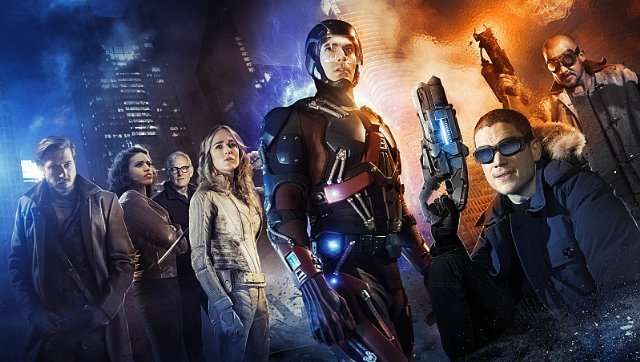
As in my earlier episode guides for The Flash, Arrow and Supergirl, I'll be using a form inspired by what I think is the finest episode guide ever written - Doctor Who: The Discontinuity Guide by Paul Cornell, Martin Day & Keith Topping. Here is the quick rundown.
Plot: A quick summary of the main story.
Influences: Specific media which may have inspired or otherwise influenced the episode.
Goofs: Holes in the plot, visible wires during the stunts and other things that don't work the way they should.
Performances: The actors and their craft - how well the characters are played.
Artistry: Anything on the technical side of things that is notably well-handled, such as set-design, lighting, sound effects, cinematography, etc.
Trivia Of Tomorrow: Random things of interest and references to the comics.
Technobabble/Arcana: Pseudoscience terminology used to justify the unlikely.and/or impossible things that sometimes happen in superhero shows as well as anything regarding the rules of how science and magic work in the Arrowverse.
Dialogue Triumphs: Anything the characters say that make you want to put on a cape and fight for justice!
Dialogue Disasters: Anything the characters say that make you roll your eyes or snort in disbelief.
Continuity: Direct references to previous episodes or events on The Flash and Arrow.
Location: Where and when the story is set.
Untelevised Adventures: Stories that take place off camera, but are referred to.
The Fridge Factor: How badly Canary, Hawkgirl or any other female character on the show is manipulated by the story in order to build up the male characters.
The Crisis Factor: How badly the heroes are manipulated to look incompetent and badly trained compared to whatever villain they're facing.
The Bottom Line: Is it good or bad? Why is it good or bad? How can they make it better/not make it worse?
Got any suggestions on a category to add? Let me know in the replies.

No comments:
Post a Comment